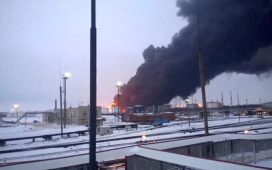Political cycles are a well-known phenomenon and they contain an element in common with commodity cycles: the belief by those on the upside that they are not in a cycle but a new paradigm. When real estate booms, agricultural prices soar, or oil prices spike, many insist that ‘this time is different’ and prices will not weaken. Winning political movements, liberal or conservative, rarely plan for a turn of the ideological screw that will remove them from power.
This has significant policy implications, including for the oil industry. U.S. politics are currently pro-business in many ways, especially in applying a philosophy of reducing regulation, and this is a welcome development given a long-term trend of increasing, and increasingly complex, efforts to monitor and constrain private behavior (corporate and individual).
But it is highly unlikely that the U.S. will be dominated by conservative, populist leaders forever and maybe not even beyond the next election. Already, the petroleum industry faces many obstacles to its operations, such as legal challenges to pipeline construction projects, which have created localized gluts and depressed oil and gas prices (including for my family, with some small production in the Appalachians).
And the slate of Democratic candidates is dominated by those unfriendly to much of the private sector and especially fossil fuel producers, meaning the situation could worsen dramatically in the near future. This includes a (to my thinking) irrational intention to ban fracking, which would damage the economy badly and probably raise greenhouse gas emissions significantly.
The industry does not always do itself a favor for buying into the ‘we’ve won’ attitude when a preferred leader is elected, and not just because politicians often do not follow the path we would expect. Jeb Bush opposed drilling offshore Florida, for example. And, just as the alarmist warnings from the apocalypse-believers discredits them (see Prince Charles’ claim in 2009 that there was only 96 months to save the world, and then check out the conservatives trolling him for that), so the industry suffers when it insists that it can self-regulate and then the news reports a refinery explosion, a pipeline leak, etc., etc.
Because even if you yourself operate with only the best trained people according to the highest standards, maintain a pristine workplace and save the whales, the industry is huge and there is always someone who will take the least necessary care in their operations. And you will pay the price when the least competent actor screws up: look at the offshore drilling shut-down that was imposed on everyone after the Deepwater Horizon disaster.
When you are trying to build a pipeline or frack a lease, the opposition you face will be driven more by headlines and news reports than by your own record (unless your record is very bad). This is the nature of reality, unfortunately, and is part of the reason why groups like the American Petroleum Institute often set ‘standards,’ saying for example, “Operations for Layflat Hose in Oilfield Water Applications has been published to drive safety and environmental protection for those operations which use layflat hoses. The new recommended practice addresses the safe use of hoses at upstream operations and ensures operators are using equipment that can maintain integrity when transporting water.”
Although this opinion is not very popular with some in the industry, I think it would be better for them to work with government and even some environmental groups to develop regulations instead of opposing them absolutely. Because there will always be regulations, and it’s better for them to be good regulations than bad ones.
Api








